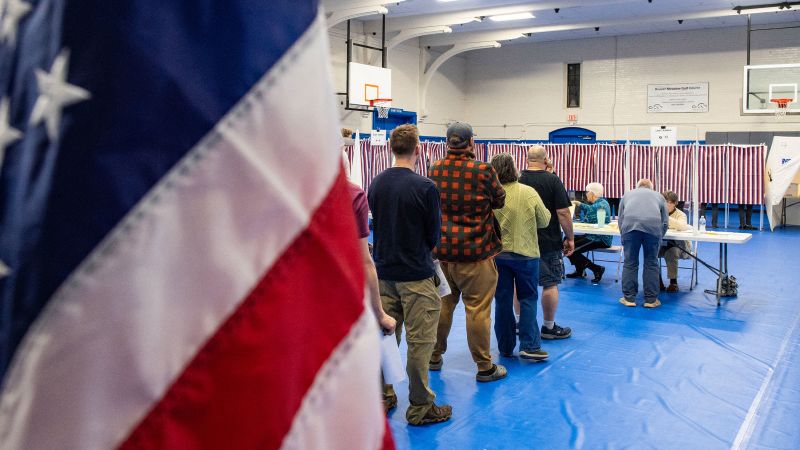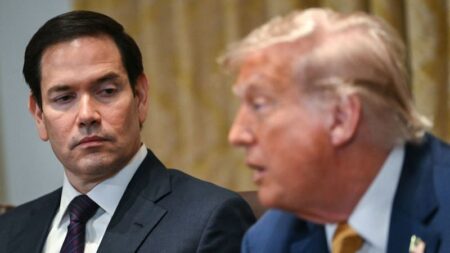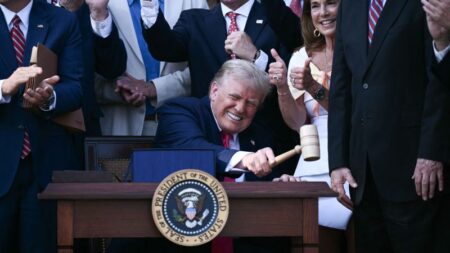The Democratic Party is currently grappling with significant internal crises and challenges as it ponders its future following some disappointing electoral outcomes. One notable initiative under consideration is a $20 million project aimed at attracting young men to the Democratic Party, spearheaded by a faction of veteran Democrats. Concurrently, a liberal organization is embarking on a listening tour across 20 states, focusing on the concerns of working-class Americans. These efforts indicate a growing recognition within the party that it must effectively engage with demographics that have become disillusioned or indifferent towards its agenda.
In the midst of this introspection, the Democratic National Committee (DNC), under the leadership of its new chairman Ken Martin, is conducting a thorough “postelection review.” This examination is aimed not only at understanding the missteps that accompanied Kamala Harris’s campaign for the 2024 presidential election but also at analyzing the broader ecosystem of Democratic-aligned organizations. Collectively, these groups spent more than $10 billion in the last election cycle, yet found themselves excluded from power in Washington.
More than six months after Republicans secured victory in both the White House and Congress, the Democratic Party continues to confront the harsh realities of its defeats. Intraparty dialogues intensify around the language, policies, and overall messaging that the party should adopt moving forward. As more members of the party assess their strategies, alarm bells resonate, underlined by a CNN poll that shows a staggering decline in the Democratic Party’s favorability rating—a mere 29% as of March, marking a 20-point drop since the end of Donald Trump’s first term.
The perception of strong leadership is crucial, and the DNC acknowledges that Americans tend to view Republicans as the party with more robust leaders. Perhaps more troubling for Democrats is that even their own partisan supporters express skepticism regarding their party’s leadership compared to Republicans. This dynamic has given rise to a sentiment among voters that the Democratic Party lacks strength, while Trump continues to be seen as an authentic and strong figure, despite Martin’s insistence on the opposite.
The soul-searching process extends beyond the DNC; it has ignited a multifaceted exploration of the party’s shortcomings, prompting various political research endeavors to better understand these electoral challenges. Some Democrats have voiced frustration over the idea of relying heavily on consultants and introspective studies, feeling that such approaches might deepen perceptions of the party’s disconnection with everyday voters.
As prospects for potential 2028 contenders emerge, figures like Arizona Sen. Ruben Gallego are advocating for a pivot toward straightforward and empathetic communication rather than abstract policy discussions. Gallego highlights the struggles young Latino men face in providing for their families and underscores the necessity of communicating in relatable terms to engage them better.
Simultaneously, Gallego has noted a caution against academic jargon and technical terms that detract from the candid acknowledgment of voters’ real-life challenges. His focus remains on personal engagements rather than abstract liberal ideals that may alienate voters.
Candidates are also voicing a need for action-oriented messaging as exemplified by Minnesota Gov. Tim Walz and Maryland Gov. Wes Moore, who emphasize the importance of direct and actionable communication over lengthy deliberations that have historically hampered the party’s resonance with the electorate. Their statements reflect a consensus that the Democrats must shift from a cautious approach to one characterized by urgent responsiveness.
An initiative called “Speaking with American Men” is indicative of these efforts, aimed specifically at understanding and addressing the motivations of young men who have shifted political allegiances. This project, described as vital by advocates like Ilyse Hogue and John Della Volpe, is expected to facilitate deeper engagement with this demographic, exploring digital spaces where these voters congregate.
The commitment to this initiative underscores a realization that Democrats cannot afford to ignore the rising discontent among targeted demographics. To counteract right-wing narratives that these individuals may encounter daily, high levels of investment are planned to bridge gaps and initiate more relatable communication channels.
Additionally, insights from grassroots efforts, such as American Bridge’s Working Class Project, reveal a profound sentiment among voters feeling overlooked by Democrats and their priorities. Recognizing the need to alter this perception is critical as party leaders stress the importance of inclusive dialogue that assures voters their concerns are comprehensively recognized and validated.
Ultimately, as the party prepares for upcoming gubernatorial and congressional elections, shifts in public sentiment could signal potential openings for Democrats. Despite recent challenges, emerging opportunities provide a hopeful outlook that with concerted effort and community engagement, the party may reclaim its connection with critical voter bases.









